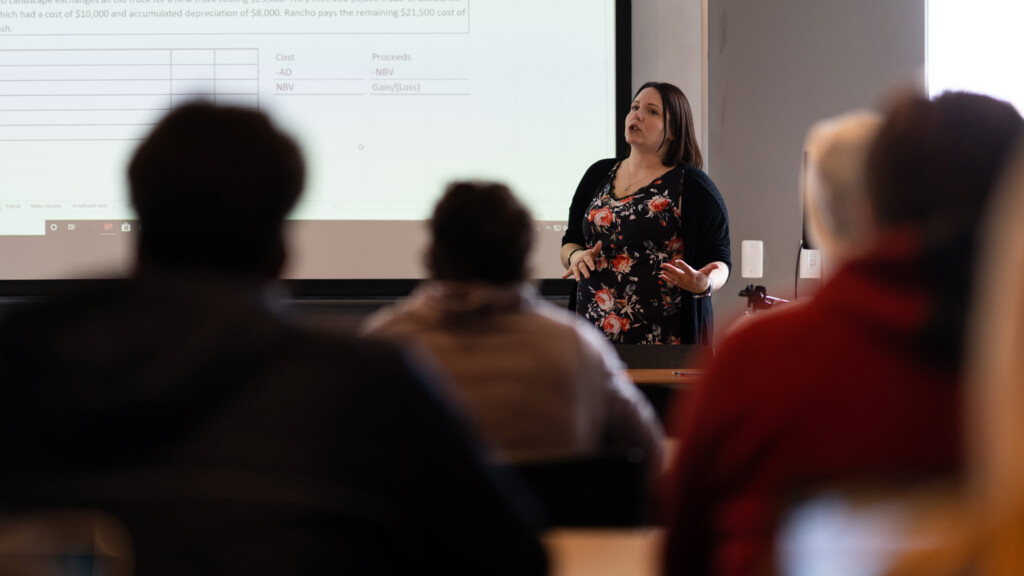Overview
- Degree Level
- Undergraduate
- Degrees Offered
- Bachelor of Arts, Bachelor of Science
- school/college
- School of Global Business

Accounting is a core aspect of any business, providing key knowledge for businesses, non-profits, and government organizations. The Bachelor of Arts and the Bachelor of Science in Accounting degrees provide background in core business areas as well as in liberal arts. You will gain valuable technical knowledge and skills to effectively lead organizations and people in any professional setting.
Studying Accounting, you will receive:
Detailed insight into accounting principles, theory, and specialties such as tax, cost, and auditing.
All credits you need to take to sit for the Certified Public Accountant (CPA) examination in Pennsylvania and in some other states, as well as the Certified Management Accountant (CMA) examination.
An optional focus through a selected concentration: Economics, Finance, Management, and Marketing.
The Bachelor of Arts in Accounting focuses more on liberal arts courses. You will have more opportunities to explore related elective courses.
The Bachelor of Science in Accounting is a more quantitative oriented degree. The additional coursework focuses on mathematics, business practices, and economics.
You will be prepared for positions in business, government, and other organizations in any accounting field or business career. These include finance, marketing, sales, management, human resources.
In order to sit for the CPA examination in Pennsylvania, you must hold a bachelor’s degree with at least 24 credits in accounting-related courses. CPA candidates in Pennsylvania are permitted to sit for the CPA exam with less than 150 credit hours. However, they will be required to complete all 150 credit hours to satisfy the work experience requirement prior to CPA license. Our students regularly complete 150 credit hours in this undergraduate degree.
Required Course
From individuals to corporations and partnerships, you will learn federal income tax legislation, rules, and regulations. Take a deeper look into the relationships among tax theory, tax preparation, and tax planning.
Required Course
Explore auditing theory, objectives, and practices. This course includes an overview of professional ethics, generally accepted auditing standards, and internal control procedures.
Required Course
Examine the problems associated with business combinations and consolidations, inter-company profit transactions, and complex affiliation transactions. You'll analyze branch operations, foreign operations and transactions, and state and local government fund accounting.
Elective Course
The course will expand upon traditional individual taxation and estate planning coverage with a review of the potential income tax benefits available to families caring for those with special needs.
